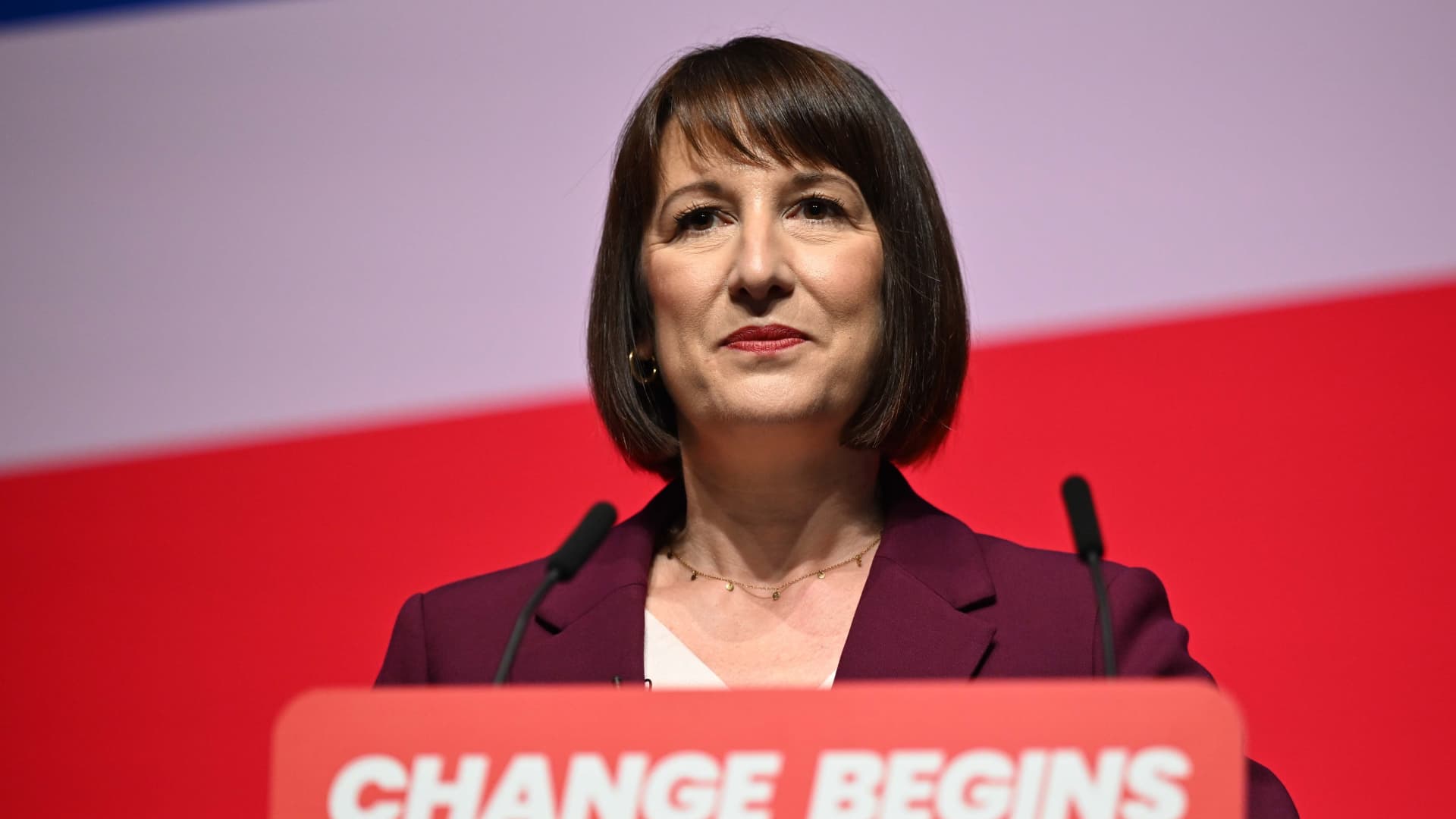UK Finance Minister Rachel Reeves makes a speech during the Labour Party Conference that is held at the ACC Liverpool Convention Center in Liverpool, UK on September 23, 2024.
Anadolu | Getty Images
LONDON — British tech bosses and venture capitalists are questioning whether the country can deliver on its bid to become a global artificial intelligence hub after the government set out plans to increase taxes on businesses.
On Wednesday, Finance Minister Rachel Reeves announced a move to hike capital gains tax (CGT) — a levy on the profit investors make from the sale of an investment — as part of a far-reaching announcement on the Labour government’s fiscal spending and tax plans.
The lower capital gains tax rate was increased to 18% from 10%, while the higher rate climbed to 24% from 20%. Reeves said the increases will help bring in £2.5 billion ($3.2 billion) of additional capital to the public purses.
It was also announced that the lifetime limit for business asset disposal relief (BADR) — which offers entrepreneurs a reduced rate on the level of tax paid on capital gains resulting from the sale of all or part of a company — would sit at £1 million.
She added that the rate of CGT applied to entrepreneurs using the BADR scheme will increase to 14% in 2025 and to 18% a year later. Still, Reeves said the U.K. would still have the lowest capital gains tax rate of any European G7 economy.
The hikes were less severe than previously feared — but the push toward a higher tax environment for corporates stoked the concern of several tech executives and investors, with many suggesting the move would lead to higher inflation and a slowdown in hiring.
On top of increases to CGT, the government also raised the rate of National Insurance (NI) contributions, a tax on earnings. Reeves forecasted the move would raise £25 billion per year — by far the largest revenue raising measure in a raft of pledges that were made Wednesday.
Paul Taylor, CEO and co-founder of fintech firm Thought Machine, said that hike to NI rates would lead to an additional £800,000 in payroll spending for his business.
“This is a significant amount for companies like us, which rely on investor capital and already face cost pressures and targets,” he noted.
“Nearly all emerging tech businesses run on investor capital, and this increase sets them back on their path to profitability,” added Taylor, who sits on the lobbying group Unicorn Council for U.K. FinTech. “The U.S. startup and entrepreneurial environment is a model of where the U.K. needs to be.”
Chances of building ‘the next Nvidia’ more slim
Another increase to taxation by way of a rise in the tax rate for carried interest — the level of tax applied to the share of profit a fund manager makes from a private equity investment.
Reeves announced that the rate of tax on carried interest, which is charged on capital gains, would rise to 32%, up from 28% currently.
Haakon Overli, co-founder of European venture capital firm Dawn Capital, said that increases to capital gains tax could make it harder for the next Nvidia to be built in the U.K.
“If we are to have the next NVIDIA built in the UK, it will come from a company born from venture capital investment,” Overli said by email.
“The tax returns from creating such a company, which is worth more than the FTSE 100 put together, would dwarf any gains from increasing the take from venture capital today.”
The government is carrying out further consultation with industry stakeholders on plans to up taxes on carried interest. Anne Glover, CEO of Amadeus Capital, an early investor in Arm, said this was a good thing.
“The Chancellor has clearly listened to some of the concerns of investors and business leaders,” she said, adding that talks on carried interest reforms must be “equally as productive and engaged.”
Britain also committed to mobilizing £70 billion of investment through the recently formed National Wealth Fund — a state-backed investment platform modelled on sovereign wealth vehicles such as Norway’s Government Pension Fund Global and Saudi Arabia’s Public Investment Fund.
This, Glover added, “aligns with our belief that investment in technology will ultimately lead to long term growth.”
She nevertheless urged the government to look seriously at mandating that pension funds diversify their allocation to riskier assets like venture capital — a common ask from VCs to boost the U.K. tech sector.
Clarity welcomed
Steve Hare, CEO of accounting software firm Sage, said the budget would mean “significant challenges for UK businesses, especially SMBs, who will face the impact of rising employer National Insurance contributions and minimum wage increases in the months ahead.”
Even so, he added that many firms would still welcome the “longer-term certainty and clarity provided, allowing them to plan and adapt effectively.”
Meanwhile, Sean Reddington, founder and CEO of educational technology firm Thrive, said that higher CGT rates mean tech entrepreneurs will face “greater costs when selling assets,” while the rise in employer NI contributions “could impact hiring decisions.”
“For a sustainable business environment, government support must go beyond these fiscal changes,” Reddington said. “While clearer tax communication is positive, it’s unlikely to offset the pressures of heightened taxation and rising debt on small businesses and the self-employed.”
He added, “The crucial question is how businesses can maintain profitability with increased costs. Government support is essential to offset these new burdens and ensure the UK’s entrepreneurial spirit continues to thrive.”

 Blog Post1 week ago
Blog Post1 week ago
 Economics1 week ago
Economics1 week ago
 Finance1 week ago
Finance1 week ago
 Personal Finance1 week ago
Personal Finance1 week ago
 Accounting1 week ago
Accounting1 week ago
 Economics1 week ago
Economics1 week ago
 Personal Finance6 days ago
Personal Finance6 days ago
 Personal Finance1 week ago
Personal Finance1 week ago










